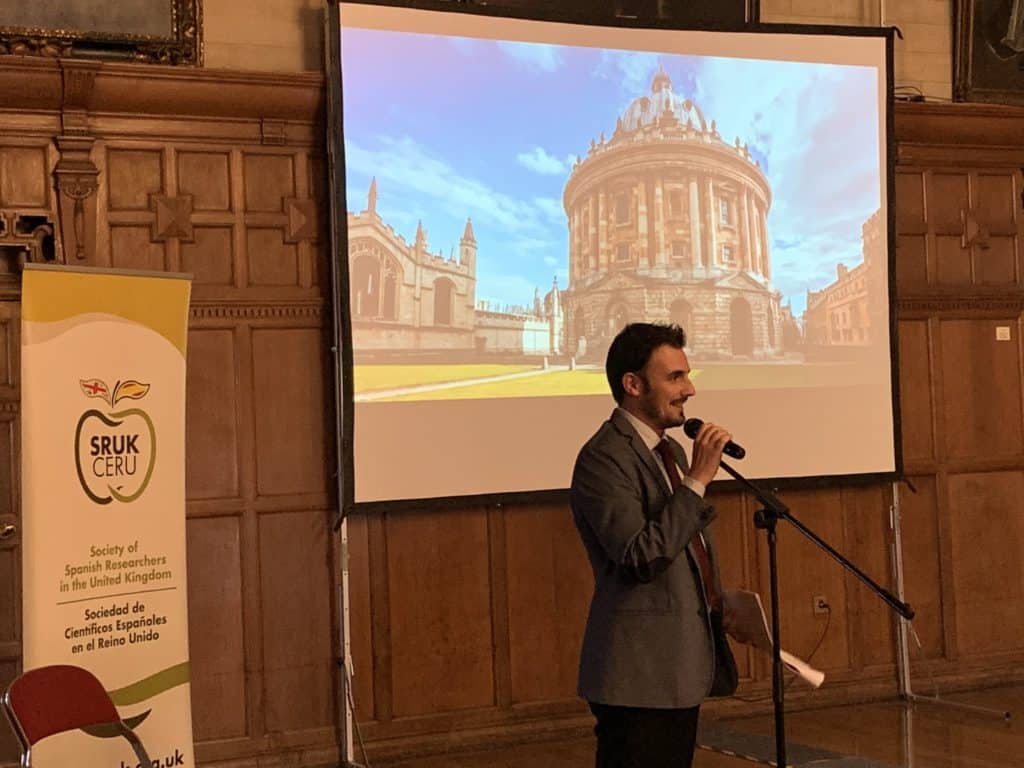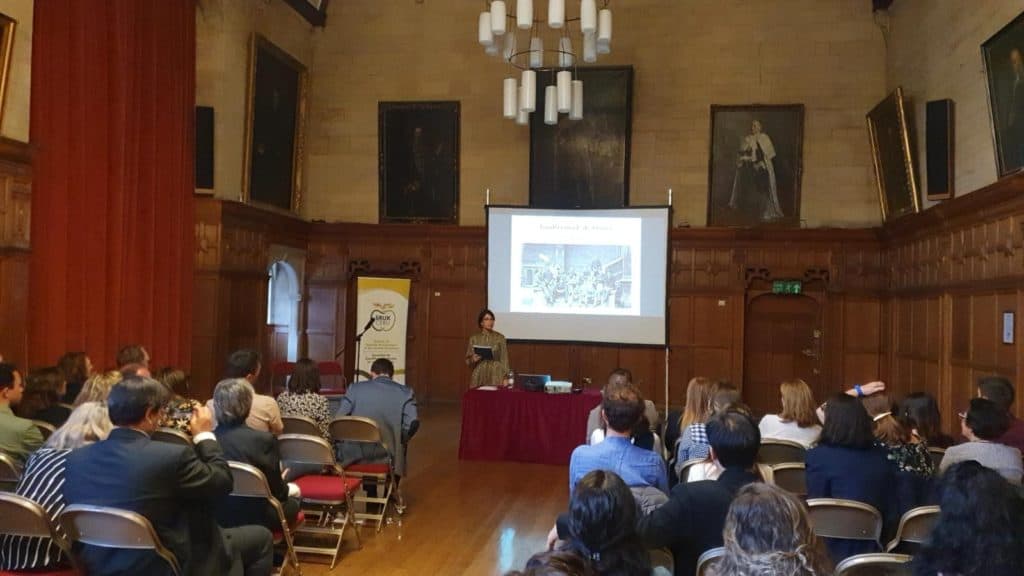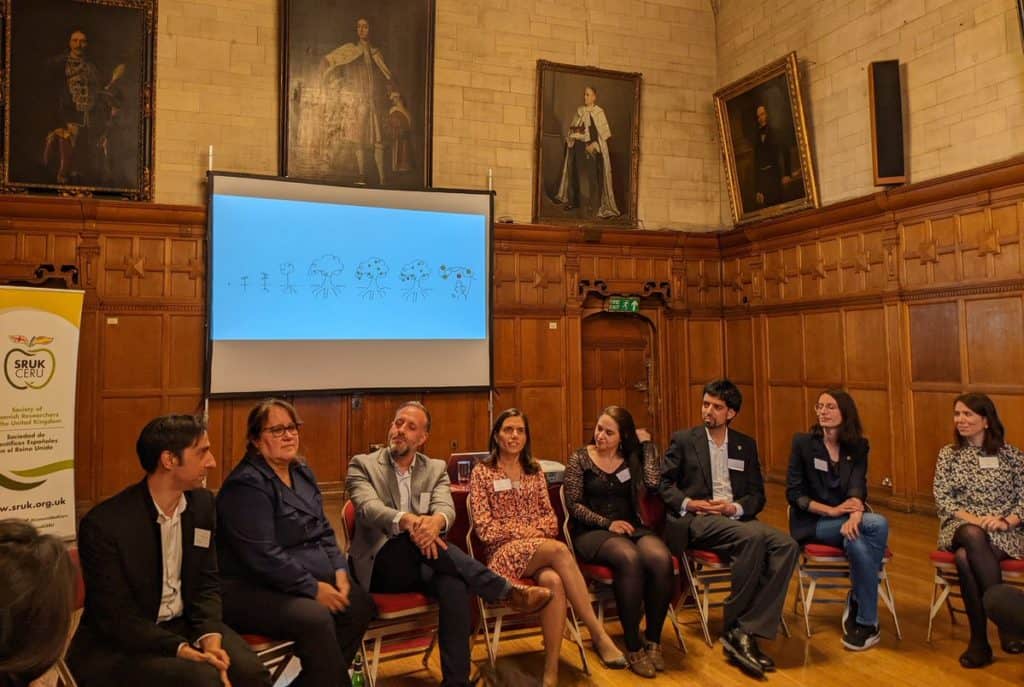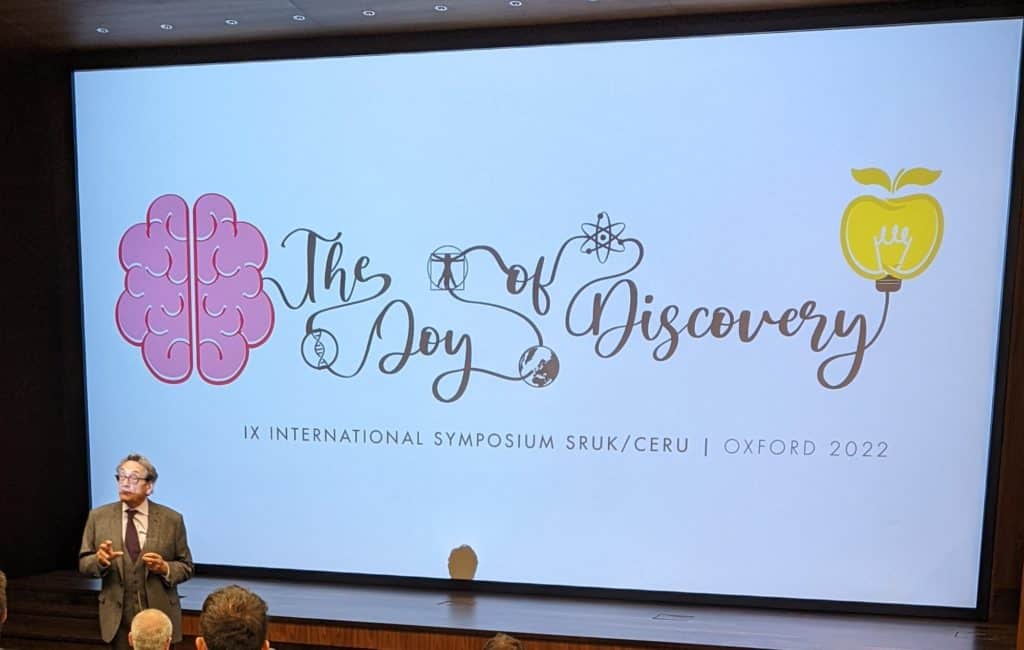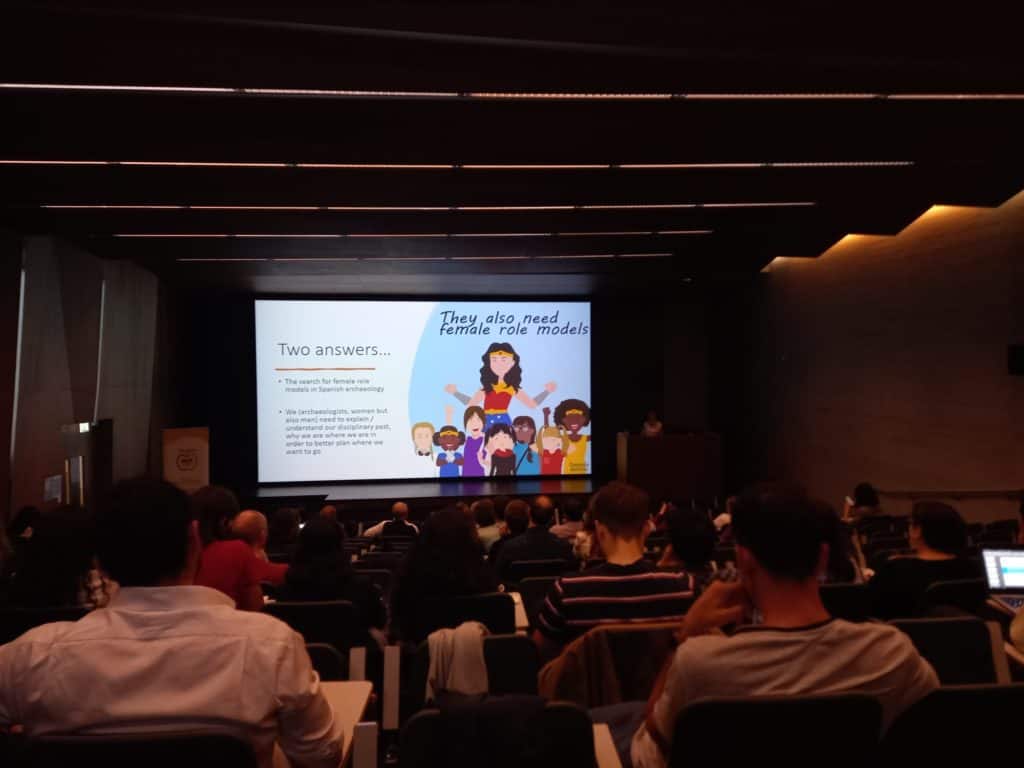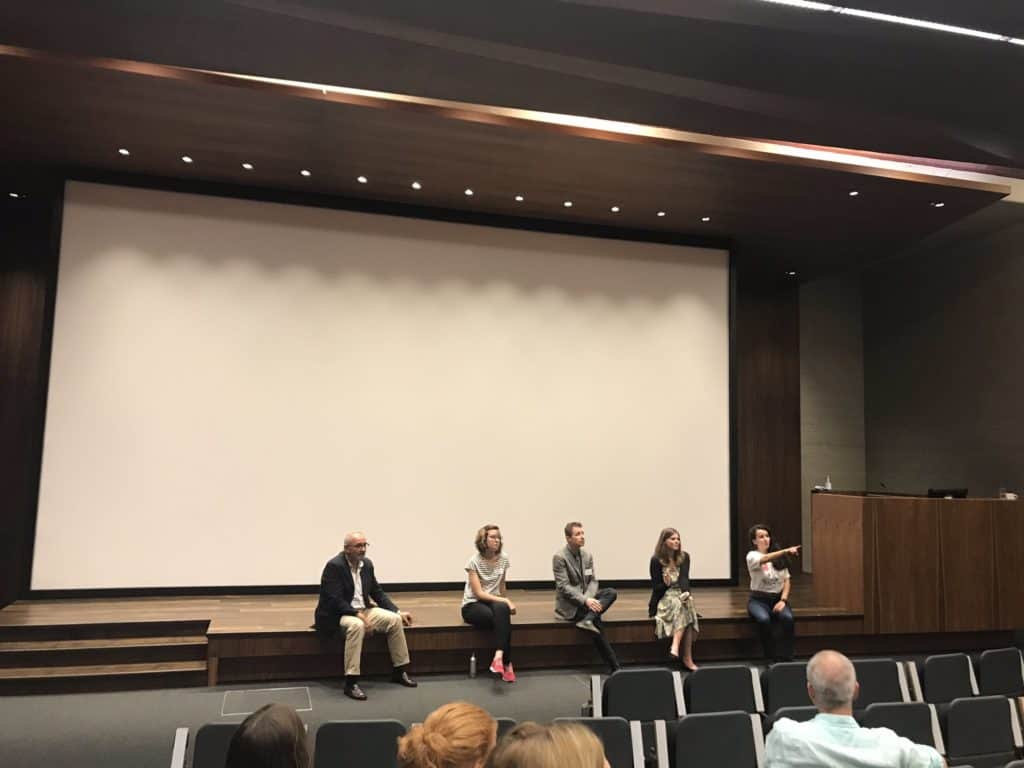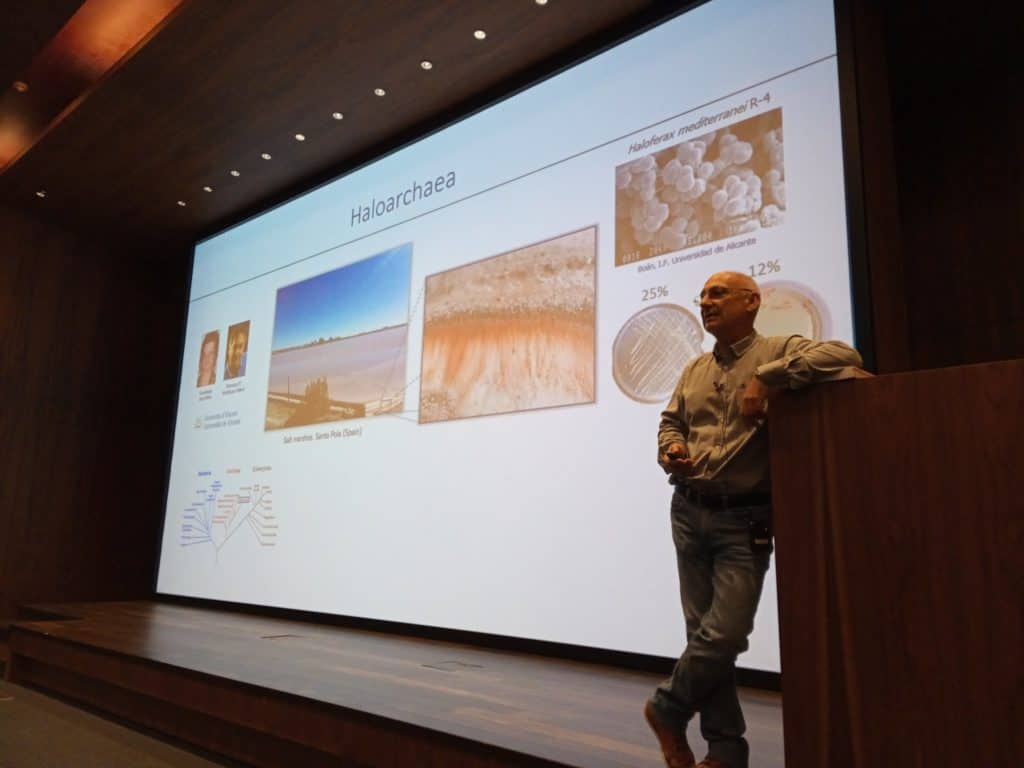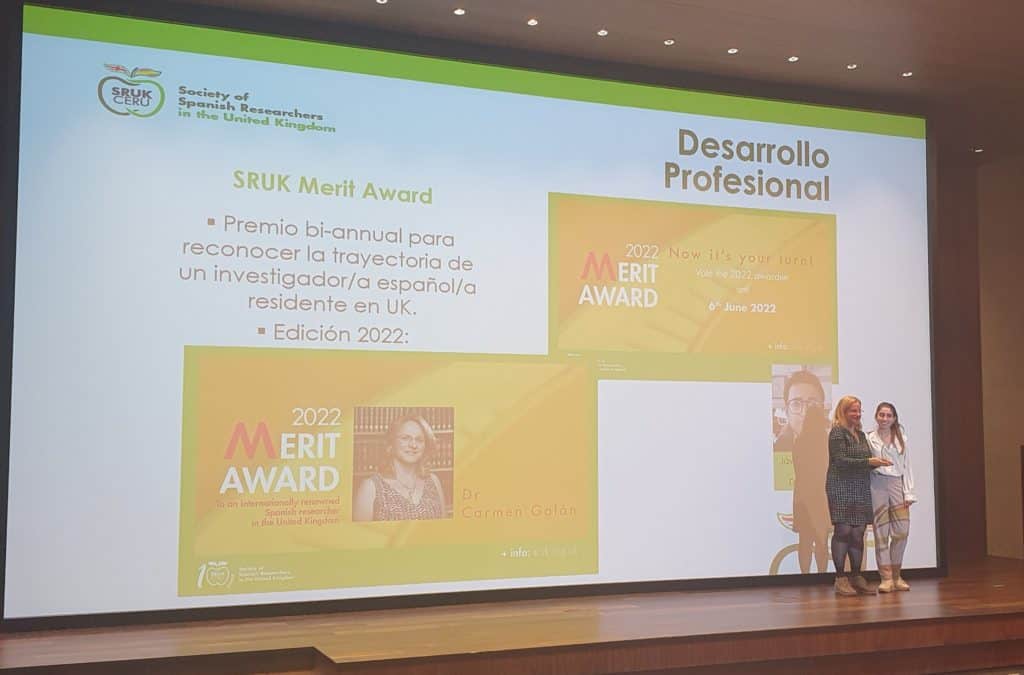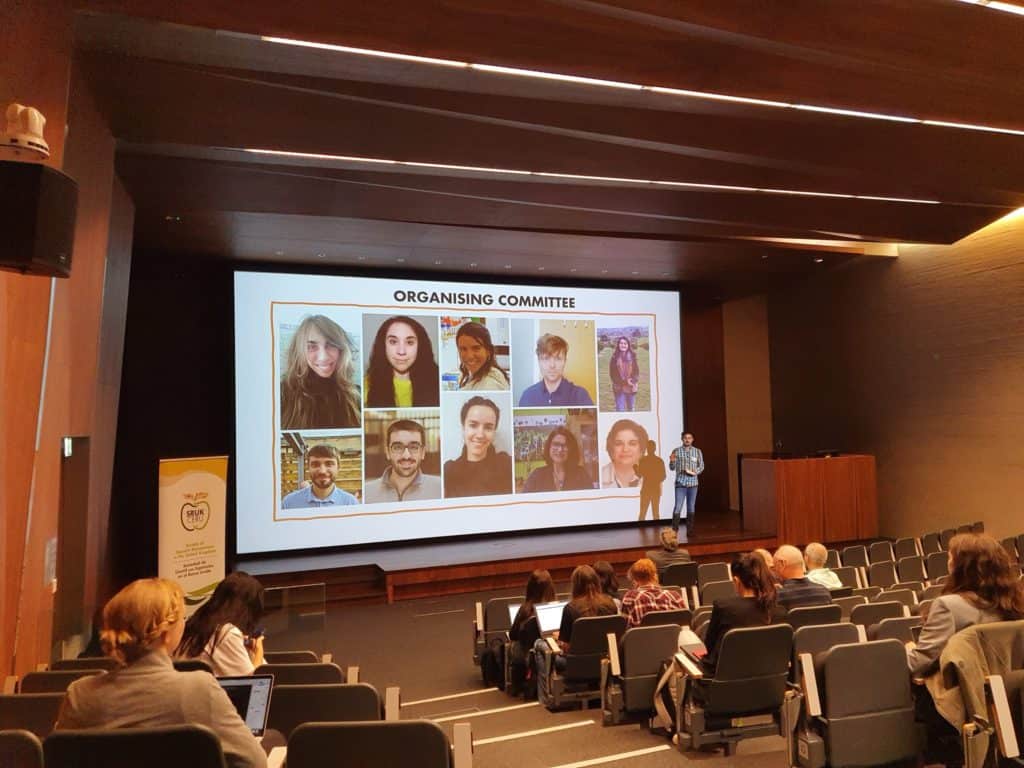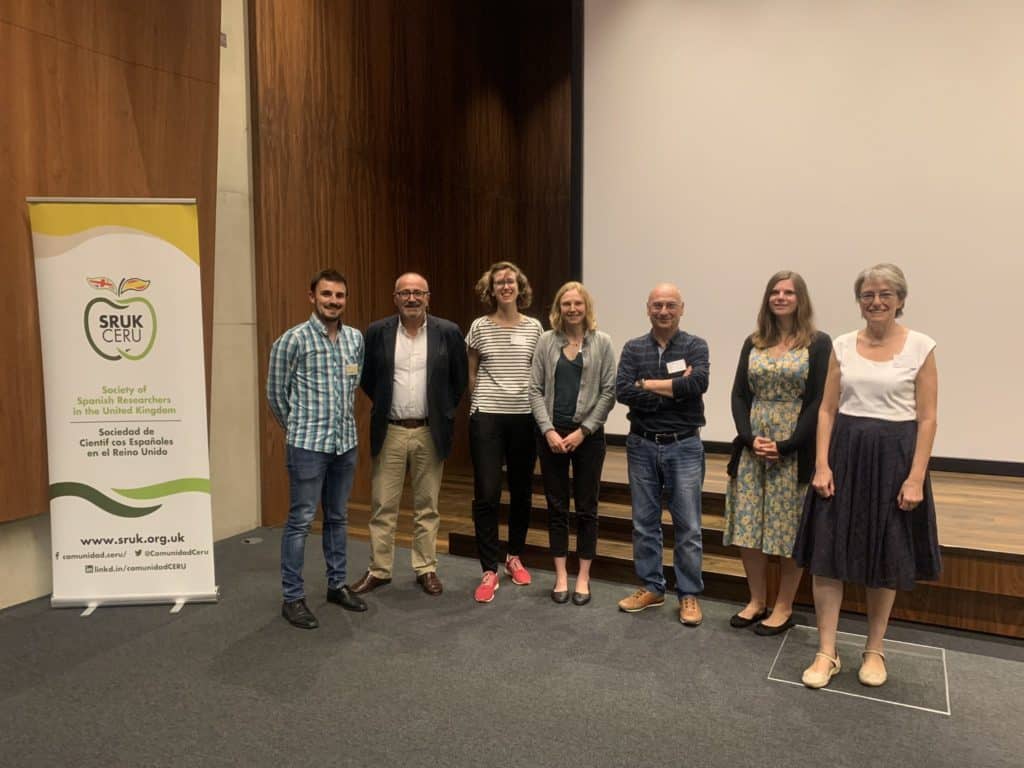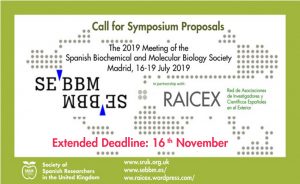- The Society of Spanish Researchers in the UK (SRUK/CERU) organised their IX International Symposium in Oxford, where the “Joy of Discovery” was the underlying theme used to revisit and discuss the History of Science.
- Renowned scientists from different research backgrounds, such as Prof Francis Mojica, Dr Margarita Díaz-Andreu, Prof Felipe Fernández-Armesto, Dr Rebecca Bowler, and Dr Marina Pérez de Arcos; passionately shared their Eureka moments and the excitement of their discoveries.
- From the Big Bang through the microscopic world to social sciences and history, more than a hundred attendees had the chance to revisit the History of Science and learn about the role of many female scientists in discoveries that once upon a time were not acknowledged.
Oxford, 4th of July 2022. The Society of Spanish Researchers in the United Kingdom (SRUK/CERU) hosted this weekend their IX International Symposium in Oxford. The welcome reception took place at the Oxford Town Hall, which was hosted by Dr Pablo Muñoz, Chair of this IX Symposium. The event counted with introductory speeches by Dr Claudia Román Montañana, SRUK/CERU President; Ms Inma Aguilar Nácher, Director of the Spanish Foundation for Science and Technology (FECYT); Mr Raimundo Pérez-Hernández y Torra, Director of the Ramón Areces Foundation; Mr Alistair Fitt, Vice-Chancellor of Oxford Brookes University; and Mr Miguel Oliveros Torres, Minister Counsellor for Cultural & Scientific Affairs at the Embassy of Spain. The first keynote speaker was Dr Marina Pérez de Arcos, Research Associate at the Centre for International Studies and at the Department of Politics and International Relations at the University of Oxford, who engaged the audience by bridging historical, socio-political, and scientific events that have triggered the many collaborations that for centuries have been maintained between Oxford and Spain. Her inspiring talk served as a reminder about how international collaborations have always been key to lead to impactful discoveries that our society has been benefiting from. This opening ceremony commemorated the X anniversary of SRUK/CERU, which brought together all the former SRUK/CERU presidents to highlight the main achievements and impact of the Society.
More than one hundred attendees had the opportunity to revisit the History of Science by listening to the experience of several renowned scientists. “If you want to understand the past, look at its art”, emphasised Prof Felipe Fernández-Armesto, Professor of history, classics, and the history and philosophy of science at the University of Notre Dame (Indiana, USA). During his talk, Prof Fernández-Armesto called on the scientific community to “express yourself well so people want to read your work. If you have got something worth saying, say it in terms so that it is intelligible to the world. Speak to the public in the language they understand”. This last message was one of the most debated and discussed topics by the panellists at the roundtable session: Dr David Schley, Deputy Director at Sense about Science; Dr Fiona Lethbridge, Senior Press Manager at the Science Media Centre; Prof Ignacio López Goñi, Professor of Microbiology at the University of Navarra; and Dr Beatriz Vigalondo García, Secondary school teacher at IES José Luis Sampedro in Madrid. They all shared different ideas according to their professional experience that could be followed by the community of science and researchers enthusiasts to address the gap in science communication between them and the general audience, specifically to children and teenagers. In addition, Dr Margarita Díaz-Andreu, ICREA Research Professor at the University of Barcelona, highlighted the reduced, or even non-existent, presence of women in scientific disciplines. She presented “ArqueólogAs”, an initiative that she started in 2020 to acknowledge the work carried out by Spanish women in archaeology and recover their personal histories that had been long forgotten. She also highlighted how the Impostor Syndrome tends to greatly impact the academic career of women in science: “When we are given something, many women think that they do not deserve it. Why is that? Well, because we have been told so many times, directly and indirectly, that we do not deserve it. Consequently, when we receive something, we feel uneasy about it. Men also feel that, but it is more often felt in women”.
Nevertheless, not only the difficulties of scientific communication and the challenges of women in science were addressed during the Symposium. Dr. Rebecca Bowler, STFC Ernest Rutherford Fellow at Cosmic Dawn at the University of Manchester, shared her enthusiasm about discovering new galaxies as part of her research: “Astronomy is like a time machine. We can look back in time because of the fact that light travels extremely fast despite the Universe being extremely big. If we have galaxies millions of years away, this means the light has taken millions of years to get to us. Consequently, we can see how the galaxy was in the past: astronomy is a really powerful technique to look back at the beginning of the Universe”. She also went through the bumps she encountered on the road to her discoveries and shared a powerful message that the research community very often needs to be reminded of: “In terms of discovery, you might be looking at a specific place and trying so hard to find something there that you need a different wavelength, a different telescope, or a different idea that opens a new perspective and leads to new answers. You do not always discover what you first thought of, but you should always fight for the joy in research and discovery”. Similar thoughts were shared by Dr Francis Mojica, leader of the Molecular Microbiology group at the University of Alicante, who gave a fascinating and motivational talk about the joy of CRISPR discovery, which included the outcomes of his work while he was a postdoctoral researcher at Oxford. After presenting the origins of CRISPR and the scientific journey embarked by his group and other research teams to unravel the different parts of the CRISPR toolbox and the applications of this technology, he concluded that “without any doubt, scientific revolution, CRISPR revolution, is indeed the result of the work carried out by many people”, and highlighted the contribution of his current and former team members as well as the role and influence his mentors, Guadalupe Juéz-Pérez and Paco Rodríguez-Valera, had on his research. The Symposium closed with the delivery of the Merit Award to Prof Carmen Galán, Professor of Organic and Biological Chemistry at the University of Bristol, who shared her joy for receiving the award and the latest results of her pioneering research on new synthetic methodologies for oligosaccharide synthesis and the development of novel glycoconjugate probes. In the words of the awardee, “what makes this award particularly special is being recognised by a Spanish society created to support researchers like me who left Spain to develop our careers abroad”.
After two years of interruption due to the Covid-19 pandemic, this long-awaited in-person 2022 edition was a celebration of the Joy of Discovery, which SRUK/CERU members from all over the UK and speakers and institutions from both UK and Spain enjoyed sharing. In the words of Dr Román Montañana, “This has been exactly the Symposium that SRUK/CERU has been waiting for: our first in-person Symposium in three years. It has been a pleasure meeting such outstanding speakers and seeing all of our members and volunteers celebrating the 10th Anniversary of our Society together. It has been an amazing multidisciplinary Symposium full of SRUK/CERU spirit, and I can only send my warmest congratulations to Dr Pablo Muñoz and the members of the organising committee for such a successful event”.
As a Society promoting professional development, this IX edition of their International Symposium offered a space for SRUK/CERU members to present their latest research results with posters or oral presentations. In addition, the Symposium hosted different workshops on critical topics such as the importance of avoiding unconscious bias or the positive impact of gamification in higher education. The IX International Symposium SRUK/CERU was a great opportunity to dive into the process of discovering new features as part of the scientific journey, and served as a platform to give visibility to the groundbreaking research carried out by scientists working both in Spain and the UK.

